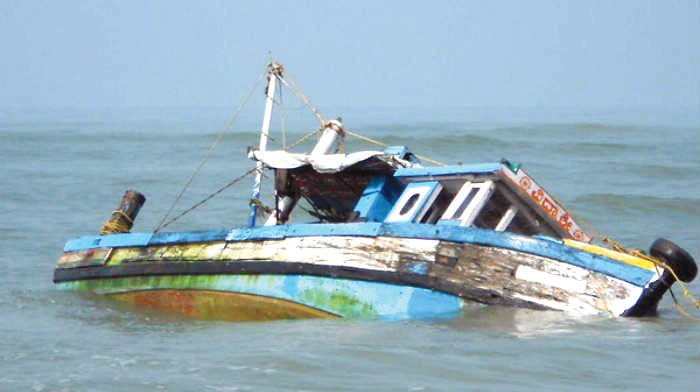The nation was once again thrown into mourning on June 12, when news broke that 107 people were killed when the boat they were travelling capsized.
The victims, including women and children, were said to be returning to their base in Patigi in Kwara State from Egboti, a community in Niger State.
Reports had it that the accident happened around 2am. The reports revealed that the boat was carrying no fewer than 250 passengers.
Sadly, boat mishaps are becoming embarrassingly a recurring decimal in the country.
- Renewed rice smuggling threatens local production
- 6 years after, residents organise prayer for late Dan Masanin Kano
In the first five months of this year, no fewer than 52 persons were said to have died while 28 persons were declared missing in nine accidents that happened in nine states, excluding that of Kwara.
According to a compilation by this paper, the nation lost 160 citizens in boat mishaps between March and September of 2022. The records showed that 86 persons were declared missing while 87 survived.
In 2021, boat accidents claimed 281 lives, with 25 other persons missing. The figures of the previous three years were largely the same, which sadly reflect how much attention is being paid to these tragedies by the relevant authorities.
During a visit to condole with the communities affected by the Kwara accident, the Managing Director of the Nigeria Inland Waterways Authority (NIWA), George Moghalu, said the boat was carrying over 250 people, all without life jackets, adding that the vessel’s engine was weak.
Moghalu said, “The boat accident was due to human error that was avoidable. From the report that we have received so far, the vessel was on the water at about 2:30am and there’s a standard protocol that vessels are not allowed to travel after 6pm because experience has shown that over 90 per cent of accidents that happen on the waterways occur either at night or early mornings.
“The boat was heavily overloaded. It had no business conveying over 250 passengers. It was practically impossible for the vessel to operate safely with that load.”
Following the accident, President Bola Ahmed Tinubu ordered a thorough investigation by the Kwara State Government and relevant federal agencies.
The state government, NIWA and the police have all pledged to carry out investigations and bring those responsible to book. We sincerely hope they will carry out their promises.
However, beyond this, all relevant authorities at both state and federal levels must come together to put a stop to this unnecessary loss of lives.
Daily Trust believes that the first step is for the governments to recognise the importance water transportation plays in the lives of millions of Nigerians.
According to NIWA, the regulatory agency of the country’s waterways, Nigeria’s resource base of waterways spans 10,000 kilometres, with about 3,800 kilometres of it navigable seasonally. This is by no means a vast resource which if utilised effectively will widen the horizon of the means of transportation in the country. Many of these routes also lead to neighbouring countries such as Benin Republic, Equatorial Guinea, Sao Tome and Cameroon. They can also be used to move goods across the country, thereby saving our roads costly wear and tear.
Unfortunately, that is not the case. The nation’s water transport sector is bedevilled with a myriad of problems ranging from outdated infrastructure to lack of regulation. As shown in most water accidents, the boats used are locally manufactured and old, just as there is absolute disregard for safety such as the use of life jackets. More often passengers are crammed into boats that have passed their time and journeys are undertaken without due regard to weather conditions or other safety issues.
We suggest that NIWA should lead the way in enlightening relevant state and local government officials on the need to pay more attention to the waterways. It can also design ways to bring in private operators who will put in money to provide modern boats and employ technology to move the sector forward. It must also be ready to apply relevant sanctions on violators of its codes of operation.
The state and local governments can help in enforcing operational rules to ensure safety on their waterways. They should set up bodies that will ensure strict adherence to operational codes on their respective waterways. Furthermore, they can assist with incentives to enable more people to go into the business. This will result in injection of modern technology and enhance safety. State and local governments must see the sector as one through which they can generate more revenue and provide employment for their citizens.
While we welcome the concern shown by President Tinubu and his directive for an investigation into the recent mishap, we urge him to go beyond that and make sure the outcome of the investigation is fully implemented.
We also urge him to make sure that the federal government leads the way in sanitising the sector to save the country from the recurring loss of lives and property.

 Join Daily Trust WhatsApp Community For Quick Access To News and Happenings Around You.
Join Daily Trust WhatsApp Community For Quick Access To News and Happenings Around You.


